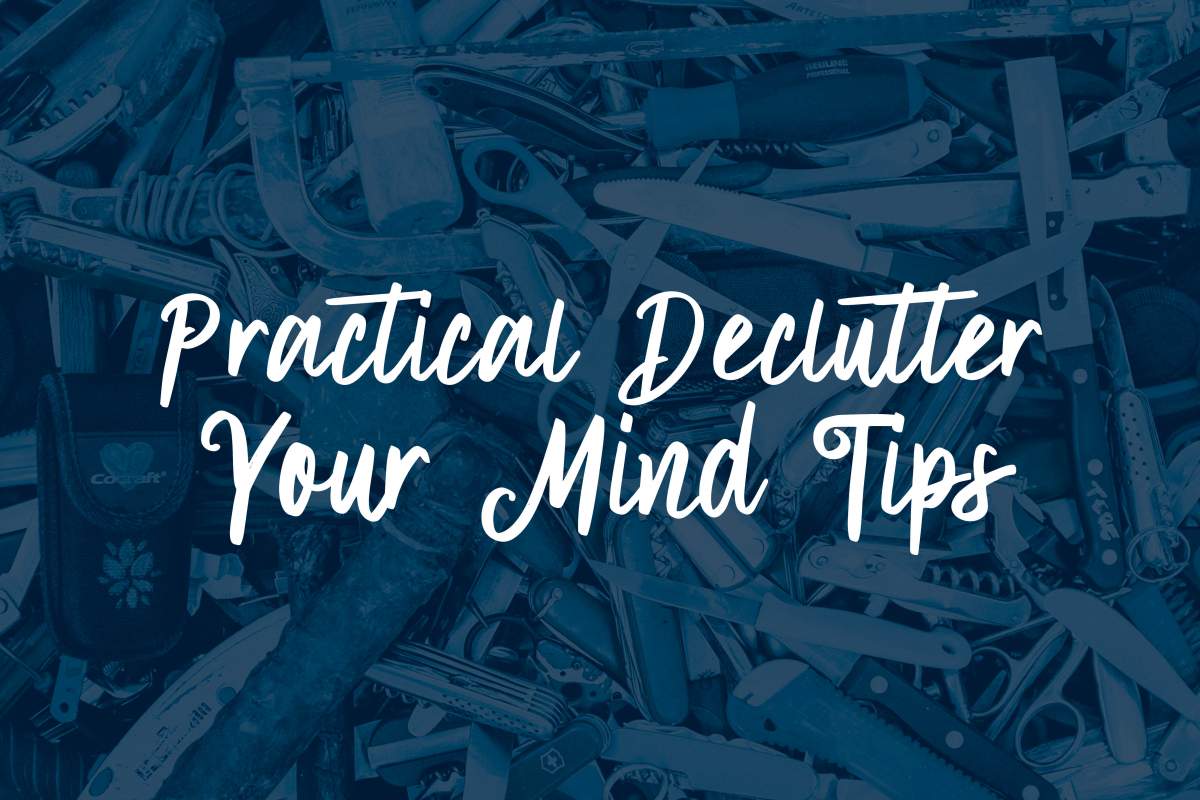Last week, I shared one of the ways I try and quiet my overactive and overstimulated mind to reduce some of the mental clutter there. We’re all different so what works for me might not necessarily work for you. This week, I’ll share some ideas by Sharon Martin from her article “8 Ways to Declutter Your Busy Stressed-Out Mind”.* She does suggest that these practices should be used consistently.
1. Declutter your physical space. When our homes and workplaces are cluttered up, we are more inclined to feel stressed and anxious. Decluttering these spaces can help quiet our minds.
2. Keep a Journal. Like I suggested last week, getting things out of our brains and down on paper can be a lifesaver for us. It enables us to analyse and organize our thoughts, worries and tasks.
3. Have a system to organise your tasks. Last week, I suggested putting things on a to-do list. That’s good, however a further step needs to be taken and that includes transferring those items to a calendar or other storage system. Two tools I find invaluable are my Outlook Calendar (synced with my phone) and “One Note”. Someone else may find they’d prefer using a pen and paper storage system. I often use both.
4. Take care of quick tasks and decisions immediately. Martin suggests if a task can be completed in five minutes or less, just do it immediately and get it off your mind. One article I read suggested that “clutter is simply delayed decisions”. Ouch, that idea hurt, because I realize I have a tendency to do this.
5. Limit your time online. I’ll write a separate article on this topic next week, as it’s really a big one.
6. Don’t take on anything new. Martin says that before we accept any non-essential commitments, we should take time to evaluate them, taking into account our interest level and the time commitment involved.
7. Spend time in nature. She cites research that shows that just 20 minutes a day in connection with nature significantly reduces stress hormones. It also refreshes and relaxes us.
8. Schedule downtime. I have written about this in earlier articles, STOP! and Pressing Pause. Martin shares one practical way we can take a mental break during our work-day. Spend lunchtime just eating your lunch (not checking social media) or going for a walk by yourself – (no podcasts or phone calls). We think we multi-task well, but we don’t – our brains are constantly switching between tasks – and don’t do either terribly efficiently.
I often say to people that there are some things that nobody else can do for us – that we have to do for ourselves. Looking after our health (physical, spiritual and mental) is one of them
Here is a link to the full article.
Jenny Billingham
(If you have a topic that you’d like more information about and think might interest other parents, please don’t hesitate to email me with suggestions at j.billingham@mueller.qld.edu.au Thanks.)






